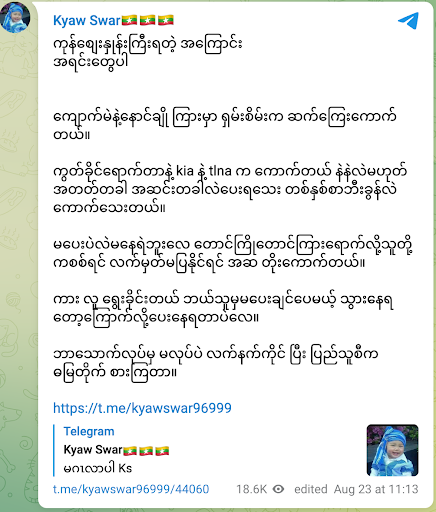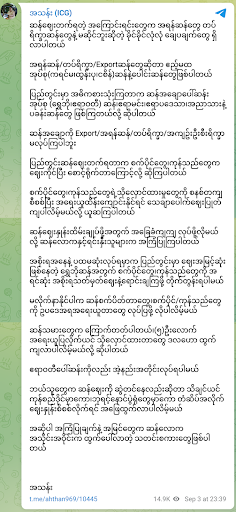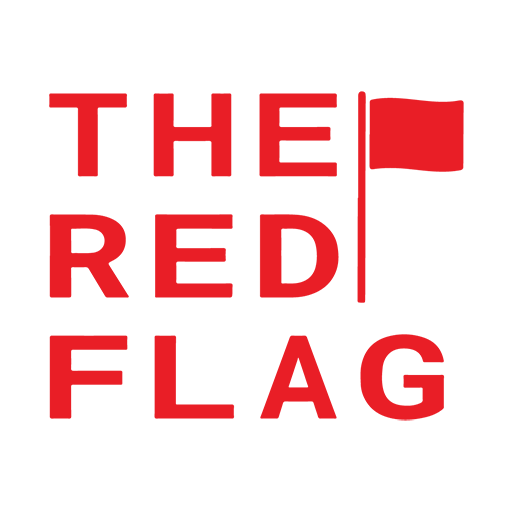Traders speculate that the rise in prices of basic food items and the US dollar is due to policy mistakes. Propaganda is being blamed for price gouging, and action is being taken to address the issue.
Summary of the process
After the military coup, internal conflicts ensued, accompanied by widespread armed revolutions and the imposition of international sanctions on the coup army. Consequently, many international investments have continued to leave the country.
The embargoed military responded by implementing more restrictive economic policies, leading to the establishment of an economic monetary system reliant solely on China, with Russia’s support. Export-import licensing terms have expanded, fuel import procedures have become more stringent, and additional administrative restrictions have been imposed on outward remittances. Increased import scrutiny and limited access to foreign currency have made it more challenging for businesses to obtain necessary goods.
Additionally, the coup army resorted to printing money, resulting in an inability to prevent price increases. The value of the Burmese currency plummeted, exacerbating fuel shortages.
As a consequence, the Burmese economy suffered from income loss, declining employment rates, and an increase in emigration for work opportunities abroad. Over the past two years, the military council has undertaken operations in villages and schools, brutally suppressing civil resistance using aircraft and weapons primarily supplied by China and Russia. This repression has led to the destruction of various buildings, including hospitals and religious structures. According to the United Nations, nearly 18 million people in Myanmar require humanitarian assistance this year.
In an attempt to deflect blame, the coup army has portrayed businessmen, bankers, and Western countries as the main culprits of the rising commodity prices. The media has been complicit in painting them as sinners, while the Council and its lobbies have contradicted each other, blaming traders for market volatility. Consequently, actual arrests and investigations against traders have been initiated, attributing the situation to management errors. This case study aims to document the spread of propaganda against traders to conceal underlying economic issues.
Process in August
On August 2, the Military Council announced the implementation of the “Union Commodity Price Stabilization Committee,” established in June, aimed at controlling the soaring prices of essential food items such as rice.
Later, on August 22, Major General Zaw Min Tun, authorized to speak on behalf of the Military Council, attributed the rise in the price of the dollar and palm oil to the greed of traders, who he claimed were seeking higher profits than justified.
Despite the Military Council’s statements, military lobby channels persisted in echoing claims that the high prices were a result of the ongoing revolution. Additionally, they shifted blame onto various parties, including rice merchants, fuel suppliers, bankers, and owners of gold shops, suggesting that they should face arrest.


“Fraudulent individuals are spreading false information and manipulating prices, leading to speculation. We must take action to address this issue. In the currency market, individuals holding local currency, foreign currency, and gold are engaging in speculative activities, which need to be properly addressed. Additionally, some banks are not operating ethically, and their activities require careful monitoring and analysis,” stated General Min Aung Hlaing, the coup leader, during a military council meeting on August 25.
Following the portrayal of business owners as sinners, towards the end of August and the beginning of September, the military detained over a hundred businessmen and some army officers. Inspections were conducted as well.
Amidst the deteriorating situation, major companies such as France’s Total and India’s Adani Group, along with multinational corporations like Ooredoo from Qatar, have exited the Myanmar market.
Despite the Military Council’s announcement of issuing new banknotes, the price of gold surged to over 35,000, and the US dollar climbed to over 33,000. Furthermore, prices of essential commodities such as oil, medicine, and basic food items continue to rise.
The disruption of economic activities due to the conflict has left Myanmar’s economy in a precarious state, according to the World Bank. The economy, which has been in turmoil since the military coup, remains uncertain, with repeated policy errors posing a significant risk of long-term damage.
In an attempt to conceal its mismanagement, the military council has resorted to scapegoating businessmen and subjecting them to continuous arrests and interrogations. These arrests serve as a propaganda tool to shift blame away from the military council and portray them as innocent while vilifying business owners.
Some of the news articles recorded at The Red Flag,
- Can Burma’s Economy Be Controlled Through Arrest Warrants?
- Investigation Underway for Some Oil Majors
- Oil Industry Association President summoned
- Summoned for Questioning Among Other Businessmen
- Council Blames Traders for Rising Dollar and Palm Oil Prices
- Military Officers and Businessmen Summoned and Questioned
- Myanmar’s Economic Prospects Amid Uncertain Situation
- World Bank Warns Policy Mistakes Could Permanently Damage Myanmar’s Economy
- Burma’s Economy Set to Suffer
- General and Businessmen Arrested by Military Council
- Gold and Dollar Prices Fall, but Rice and Oil Prices Remain High
- Response to Council’s Criticism of Businessmen Over Rising Commodity Prices
- Council Approves Commodity Price Stabilization Plan
- Military Council Chairman Attributes High Prices to Fraudsters
- Feasibility of Military Council Lowering Goods Prices Questioned
- Blaming Military Council for High Prices Laid on Entrepreneurs
Council Lobby Channels Conceal High Prices and Promote Campaigns to Arrest Entrepreneurs
Sources:
